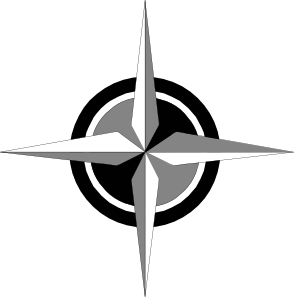Mentors
In our program this role, usually called by us a leader, is one of ensuring safety, acting as a coach, teacher, referee.
This person has to be careful how he interacts with the team.
The team is suppose to do this on their own. However, especially in the
first few races, they don't know enough. So at times you have to teach them.
Don't do it for them.
A lot of the time, the best thing to do is to ask questions.
- Orient the map.
- Where are you on the map?
- Where are you going?
- Read the clue again.
- What does that mean?
- That's not what is says. Read it again.
- What's the difference between a 'from' bearing and a 'to' bearing.
- What direction are you walking?
- Which way is north?
- Which way is the control?
Don't be afraid to let them make mistakes, but don't let them make big enough ones to ruin the day. Generally if they are off on a wild goose chase, I'll start asking pointed questions after about 10 minutes.
Often they will ask me questions. I often give them ambiguous answers. Again, the goal is to make them think through their problem.
As a referee, can you help find controls.
Answer: Yes. But you have to act as a runner. And the captain has to give you specific instructions. If you know where the control is because you placed it there, or remember it from a previous race, then you should say, "Sorry, I know too much." At that point you stay in the middle of the group. Try to neither look at the control or consistently away from it. I bird watch. Or try to get pictures of the action with my camera.
In general put your best mentors with the worst teams. This helps level the scores. If you are doing your job, the team should do better the week after you were with them than the week before.
In the early days before I had any real training program, I'd have to stop and give mini lessons.
